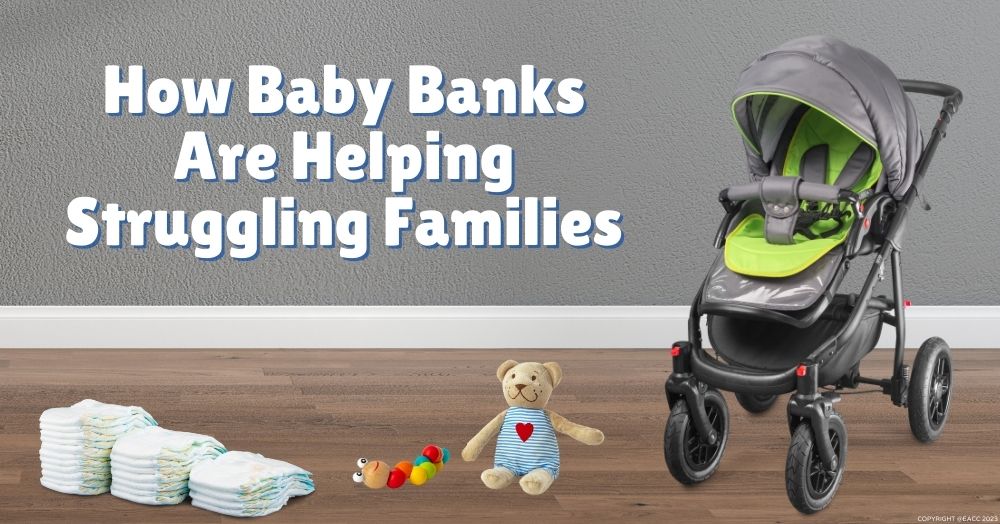You’ve no doubt heard of food banks, but do you know what a baby bank is? Read on to learn how baby banks work and if you could start your own.
For many expectant parents, the prospect of welcoming a new life into the world fills them with delight – and anxiety.
While they can’t wait to cuddle their new bundle of joy, they’re also worried about the cost of bringing up a baby.
Parenthood is an expensive business with clothing, nappies, bedding, toys and a buggy all adding up. And over the past year, the rising cost of food and bills has made things even tougher for families on low incomes.
That’s where baby banks can help.
There are more than 200 baby banks across the UK. (You’ll find a map of baby banks in the UK here.)
They work in much the same way a food bank does but instead of handing out parcels of fruit and veg, they distribute pre-loved baby essentials.
Goods distributed can include cots, Moses baskets, buggies, play gyms, high chairs, stair gates, baby baths and clothing.
For many parents on low incomes, getting help with even a few of these items is a great relief and creates a safer living environment for their children.
Using a baby bank
As with food banks, most baby banks require a referral from an agency or charity to use them.
Showing support
Most parents accumulate cupboards full of baby paraphernalia over the years, and because children grow so quickly, much of it is almost as good as new. Donating items that are in good condition to a baby bank is a great way to give back to the community – and get rid of some of your clutter.
Most baby banks have clear guidelines on their website detailing the items they accept as donations and how to drop them off.
It’s important that you only donate items that you would be happy to receive. Take tatty and knackered goods to the dump or recycle them.
Take the initiative
If there’s not a baby bank near you, but you believe there is a need, why not set up your own? Reach out to a local church or voluntary organisation and get the ball rolling.
From all of us here at Hi Residential, thanks for reading.





